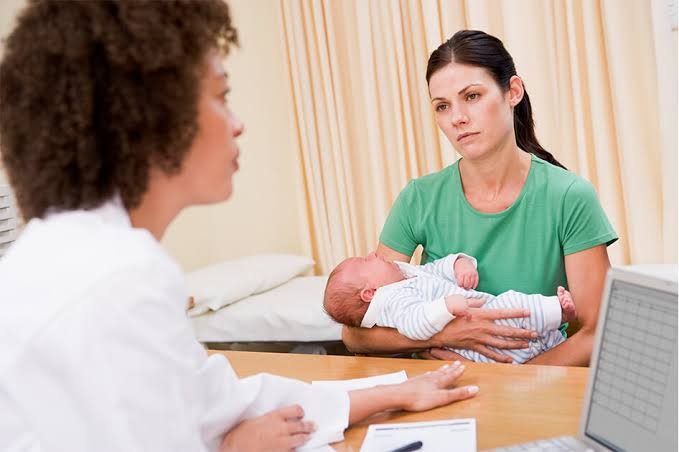Understanding the Postpartum depression
So some days ago I was reading a story from a friend on the Internet concerning a man who was surprised with his wife weird behaviour and several mood swings after she gave birth to their child , and he was wondering what could be the cause of her recent behaviour..."Well It could be post partum depression " I replied him and he was like what is that !!!
This shows that many people still do not know that there is something called post-partum depression..
Post-partum depression is a kind of depression which some women experience after giving birth..
It is often a complex combination of an emotional ,physical and behavioural changes which some women tend to experience after giving birth to their child..
It is reported that post-partum depression often begins within the first four weeks after a woman has given birth and this period is when people around her need to be more observant and be able to notice if there is any strange or weird behaviour from her after the child-birth so that they can help her find the right solutions to the problem..
Postpartum depression (PPD) is a kind of depression which can be effectively treated via medication,
It can also be treated via counselling too ....
It is a common type of depression which is common and it is a serious medical condition that should not be underrated..it is a medical condition that affects up to 1 out of every 10 women who experienced child-birth..
The Postpartum depression tends to make the person to feel so empty within inside and outside, it makes them to really become sad, moody and emotionless.. the person tends to experience frequent exhaustion and they get tired too easily and often..
It is a medical condition that one needs to pay serious attention to and they should ensure they get the right treatment which is needed..
So if as a woman you’re experiencing the postpartum depression, just stay strong and you will overcome it , you also need to be aware that you are not the only one alone in this..
References
https://www.webmd.com/depression/guide/postpartum-depression
https://www.healthline.com/health/depression/postpartum-depression
https://en.m.wikipedia.org/wiki/Postpartum_depression
https://www.nhs.uk/mental-health/conditions/post-natal-depression/overview/



This is a very important topic, yet, it is overlooked most times as people rarely recognize it at the early stage.
It is important to care for the mother as much as the baby for total wellbeing.
Hi @geneticmedia
Adding more useful content your work would better put you up for possible support from the Stemsocial community.
Use images from free sites like pixabay, wikimedia commons etc.
https://commons.m.wikimedia.org/wiki/Main_Page
Weldone!
If you have at least 10 HIQS staked, then juicy votes will follow!
Delegate [HP to @hiq.hive], [BEE to @hiq.bee], [PHOTO to @hiq.photo], [FUN to @hiq.fun] or [PIMP to @hiq.pimp] to support the HiQ Smart Bot and its trails.
For any further questions, please feel free to contact @hiq.redaktion via comment or Discord.
(This is a
semiautomaticaly created manual curation. Currently I am in the testing phase though !LOL)Check out HiQ - The Hivestyle Magazine, fomo into HiQs - The Support Token & vote our fuckingWitness!
Congratulations @geneticmedia! You have completed the following achievement on the Hive blockchain and have been rewarded with new badge(s):
Your next target is to reach 100 upvotes.
You can view your badges on your board and compare yourself to others in the Ranking
If you no longer want to receive notifications, reply to this comment with the word
STOPSupport the HiveBuzz project. Vote for our proposal!
I think i have heard about it on radio before but i did not get the detailed information about these type of depressio..thanks for sharing..!hiqvote